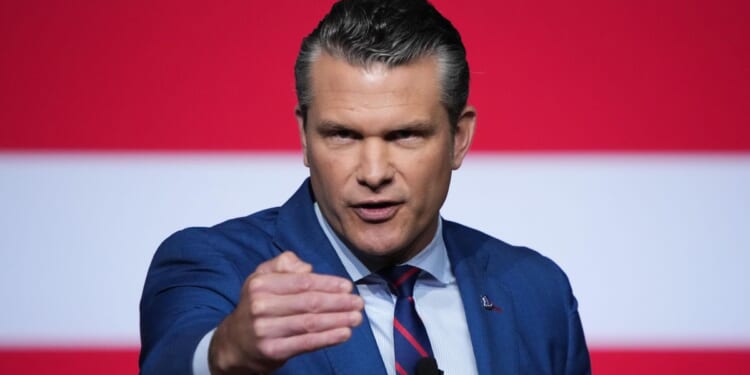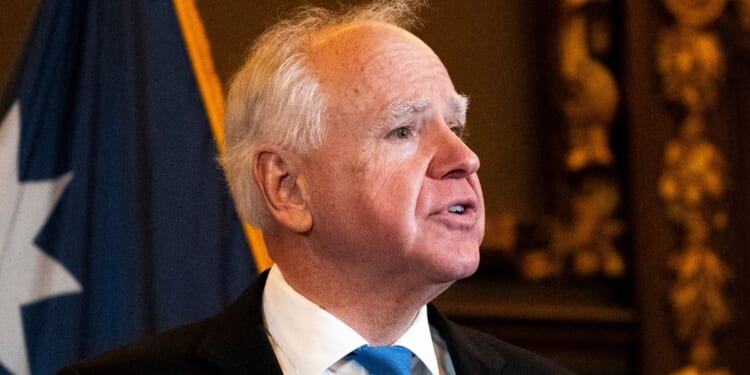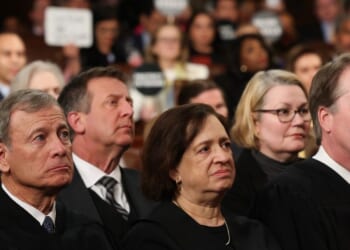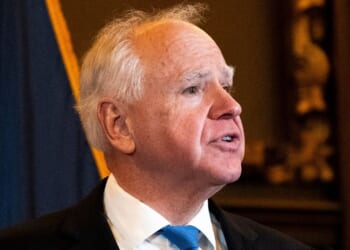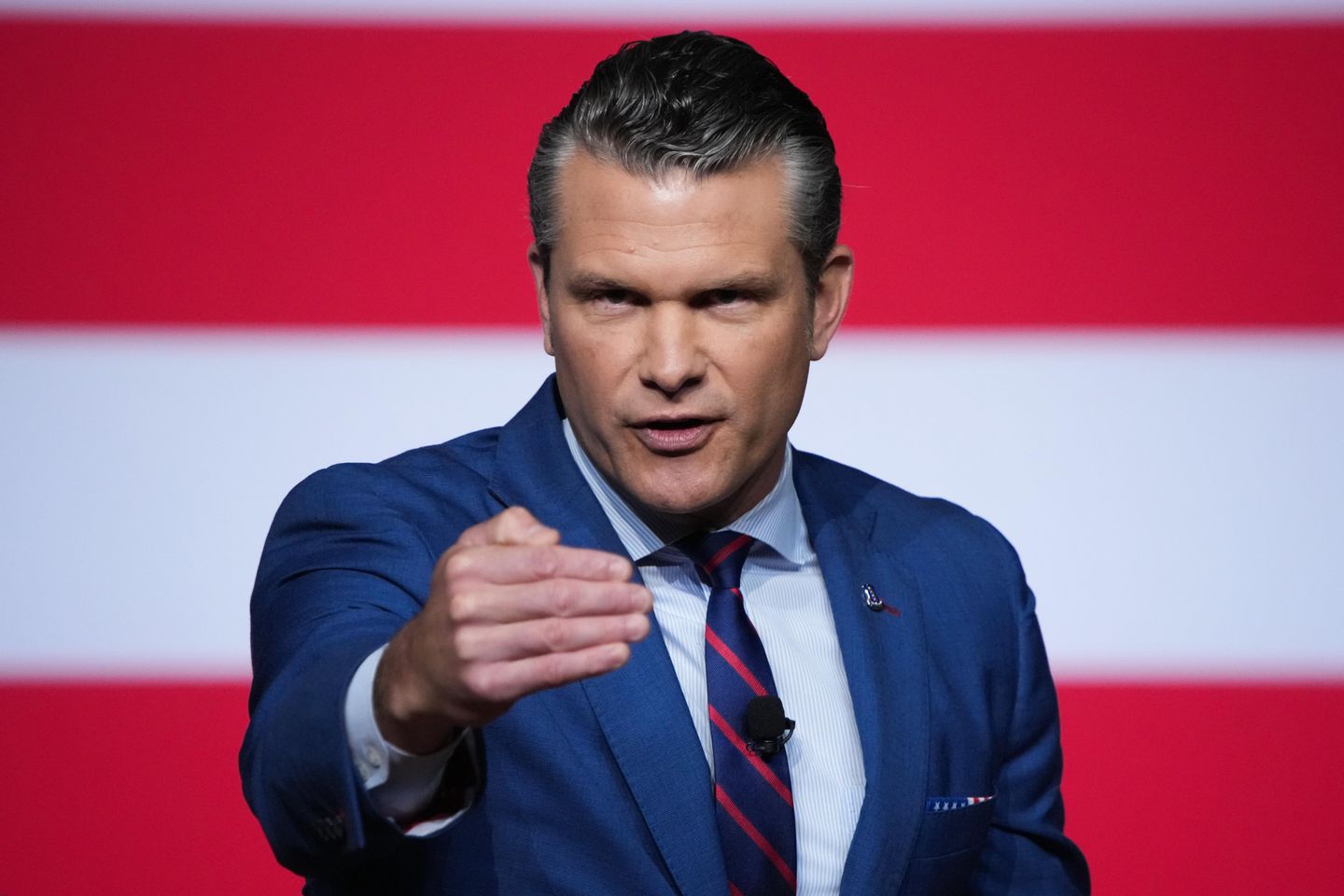
Defense Secretary Pete Hegseth has lost the trust and respect of some top military commanders, with his public “grandstanding” widely seen as unprofessional and the personnel moves made by the former cable TV host leading to an unprecedented and dangerous exodus of talent from the Pentagon, said current senior military officers and current and former Defense Department officials.
Numerous high-ranking officers painted Mr. Hegseth’s Sept. 30 speech to hundreds of generals and admirals gathered at Marine Corps Base Quantico in Virginia as a turning point in how his leadership style, attitude and overall competency are viewed in the upper echelons of the U.S. armed forces.
“It was a massive waste of time. … If he ever had us, he lost us,” one current Army general told The Washington Times.
The Quantico speech — described by other sources as “embarrassing” and theatrical to a degree that “is below our institution” — seemed to crystallize beliefs about Mr. Hegseth that had taken root among some senior officers, including the view that the secretary operates with a junior officer’s mentality that has led him to micromanage policies about issues such as military facial hair standards and press access to the Pentagon, sometimes at the expense of the much broader portfolio of a typical defense secretary.
“Mainly what I see from him are not serious things,” a current senior officer said. “It’s, ’Why did this service member tweet this?’ Or internal politics and drama. That’s mostly what I see.”
Mr. Hegseth clearly does not care about such criticism. At Quantico, he told any officer who disagreed with his priorities and his laserlike focus on a return to what he calls the military’s “warrior ethos” to resign.
Some analysts are quick to point out that military recruiting has surged since Mr. Hegseth took his post earlier this year. Supporters cite that as clear evidence that Mr. Hegseth’s approach is resonating with at least a subsection of young Americans and in the process is strengthening the armed forces. Separately, some defense industry sources stress that the Pentagon under Mr. Hegseth’s leadership is driving the development and fielding of small tactical drones in huge numbers, among other successes.
High-level sources said that they believe Mr. Hegseth is simultaneously doing deep damage to the military, both from a public relations standpoint and structurally behind the scenes, that may not be fully apparent until months or even years from now. They say Mr. Hegseth’s insistence that the Pentagon will embrace a color- and gender-blind meritocracy is at odds with reality inside the Defense Department, which President Trump has given the secondary title “War Department.”
They argue that the firings, early retirements and resignations that have amassed over the past eight months will fundamentally weaken the military.
“Across the services, we are bleeding talent, talented generals and flag officers, for what appears to be the opposite of a meritocracy,” another current senior officer said. “There are people being held back from promotions, or being fired, or removed for sometimes unknown reasons, often for favoritism, or just simple relationships.”
The officer stressed that there is strong support for some of the policy changes Mr. Hegseth laid out at Quantico, including tougher fitness standards, reforms to the Pentagon inspector general’s office and changes to how complaints against officers are filed and investigated, with an understanding in the ranks that sometimes false or trumped-up accusations of racism, for example, have been used to unfairly damage careers.
The delivery of those policy changes was widely viewed as unprofessional.
“The theater of it all is below our institution,” the officer said. “Several of these changes are being made already by the services. And they could be made by any secretary. … They don’t have to be announced on stage in public in this grandstanding kind of way.”
“It seems like it’s all about one guy here,” the officer said of Mr. Hegseth, giving voice to a common refrain expressed by multiple sources.
The sources interviewed for this article were granted anonymity to speak freely because of their concern that they would be fired for providing their honest assessments. In a statement to The Times, chief Pentagon spokesman Sean Parnell said they should consider stepping down.
“Secretary Hegseth’s speech [at Quantico] cemented a new but familiar culture we refer to as the warrior ethos. His message was simple: promotions and combat assignments will be given based on merit and ability, not diversity quotas. The war on warriors is over; political correctness has no home at the Department of War,” Mr. Parnell said. “Physical fitness standards will be high, uniform and sex-neutral, ensuring our warriors are prepared to fight and win in any arena, no matter the circumstances. These core principles have been the foundation of our force for generations and drive our entire institution.
“The anonymous general and senior officer quoted in your article should put their names to their comments if that’s what they truly believe in and consider resigning from their post. Our warriors deserve senior leaders who support the mission and put warfighting first,” Mr. Parnell said.
Constant controversy
Mr. Parnell’s comments echo what has become a guiding principle of the Pentagon under Mr. Hegseth: Those not on board with the policies of the Trump administration, and with Mr. Hegseth’s warrior ethos, should step down.
“If the words I’m speaking today are making your heart sink, then you should do the honorable thing and resign,” Mr. Hegseth said during his Quantico address. “We would thank you for your service. But I suspect, I know, the overwhelming majority of you feel the opposite.
“You are hereby liberated to be an apolitical, hard-charging, no-nonsense constitutional leader that you joined the military to be,” he said.
The warrior ethos, as Mr. Hegseth and his aides describe it, has included a concerted push to eliminate left-wing social policies, woke initiatives and political correctness that critics say have eroded the effectiveness of the military. It also includes the drive to ensure that military fitness and capability standards are gender neutral and that diversity quotas and gender goals are not factors when determining promotions.
Although the theatricality of Mr. Hegseth’s Quantico speech fell flat among many senior officers, it hardly came as a surprise in some ways. The 45-year-old Mr. Hegseth, who fought in Iraq and Afghanistan as an Army officer and was awarded two Bronze Stars, spent nearly a decade as a Fox News personality, including as the host of the station’s “Fox and Friends Weekend” program.
To some audiences, likely including the commander in chief, Mr. Hegseth’s showmanship is a feature, not a bug. At the Special Operations Forces Week convention in May in Tampa, Florida, for example, he delivered a convincing and well-received impersonation of Mr. Trump.
“Pete, you’re gonna have to be tough as s—-,” he said, imitating Mr. Trump and recounting a conversation the two men had shortly after Mr. Hegseth’s nomination. “They’re gonna come after you.”
That warning turned out to be true. Mr. Hegseth’s nomination was nearly derailed by allegations of personal misconduct, including sexual assault, excessive drinking, spousal abuse and financial mismanagement of two veterans organizations he ran. Mr. Hegseth fiercely denied those accusations even as Mr. Trump reportedly considered dropping his nomination in favor of Florida Gov. Ron DeSantis.
Ultimately, Mr. Hegseth was able to convince most Republicans that he was the victim of a political smear campaign. He narrowly cleared Senate confirmation in January by a vote of 51-50, with Vice President J.D. Vance breaking a tie in the chamber.
Since then, analysts say it’s clear his overall approach has rubbed many the wrong way, especially his seeming obsession with reversing the woke military policies of past administrations. Still, they argue that he may deserve credit for a messaging shift that has helped improve recruiting. They say he has been a vocal defender of some key U.S. alliances, has promoted responsible budgeting inside Department of Defense offices and has helped advance ambitious national security goals such as Mr. Trump’s proposed Golden Dome missile shield.
“Secretary Hegseth’s proclivity to pursue the so-called culture wars at the Department of Defense is a distraction and is causing considerable anxiety among many. He overstates the supposed fixation of earlier administrations on wokeness and distorts the effect that bringing women into more combat positions has had on the U.S. military,” said Michael O’Hanlon, senior fellow and director of research in foreign policy at the Brookings Institution.
“However, in fairness, we have not yet seen substantial negative effects on recruiting or retention,” Mr. O’Hanlon told The Times. “Encouragingly, Hegseth has been rather stalwart in defense of Asia-Pacific alliances in particular. His springtime planning exercise requiring the military services to show how they could repurpose 8% of their budgets was potentially useful, at least as a brainstorming device.”
Among other controversies, Mr. Hegseth faced intense criticism for his involvement in the Trump administration’s high-level Signal chat, in which key national security officials discussed U.S. military strikes against Yemen’s Houthi rebels using the publicly available Signal app.
’Unprecedented’ chaos
Inside the Pentagon, Mr. Hegseth’s tenure has been tumultuous. The level of turnover among high-ranking officers and civilian officials has not been seen in recent history. Sources described an atmosphere of uncertainty and fear, with hirings and firings sometimes seeming to come out of nowhere.
“Leadershipwise in the building, I can tell you the level of chaos is unprecedented. Even the teams that I was on, people were fired overnight for no given reason,” said one former Defense Department official who departed several months into the Trump administration.
“New people were brought to the team with no clear role,” the former official said. “There was just a lot of backbiting and mistrust and general unprofessionalism going on. And quite frankly, that’s carried through, and I think you saw that in the large number of civilians who left the department.”
Mr. Hegseth’s inner circle has had a dramatic level of turnover. In the spring, he fired Colin Carroll and other top Pentagon officials amid an investigation into leaks coming out of his office. Former top Pentagon spokesman John Ullyot resigned in April. A former key adviser to Mr. Hegseth, Justin Fulcher, left in July.
Sources say the number of people trusted by Mr. Hegseth has become progressively smaller. Because of that, they say that unlike past secretaries, he is not taking advantage of the wealth of experience and expertise across the Pentagon when crafting policy or making key personnel decisions.
“My understanding is now he has very much insulated himself with Sean Parnell, his wife, his brother [Phil], those couple of advisers, and isn’t really utilizing the Pentagon as previous defense secretaries have to fully vet decisions before they go through,” one former Defense Department official said.
The highest ranks of the military, and key Pentagon offices, have also had an unprecedented level of change.
Former chairman of the Joint Chiefs of Staff Gen. C.Q. Brown, a Black man, and former Chief of Naval Operations Adm. Lisa Franchetti were removed from their posts in February, just weeks into Mr. Hegseth’s tenure. Overall, more than a dozen senior generals and admirals have been fired since Mr. Hegseth assumed office. Others have resigned or announced retirements far earlier than is typical.
Gen. David Allvin, the Air Force chief of staff, said he will retire next month, about halfway through his four-year term. Doug Beck, the former director of the Pentagon’s Defense Innovation Unit, resigned in August.
Most recently, Adm. Alvin Holsey, the commander of U.S. Southern Command, said he will retire less than a year into what is normally a three-year posting. He announced his retirement amid the administration’s controversial military strikes targeting alleged drug cartel boats in the Caribbean and speculation that the U.S. could launch strikes on Venezuela.
Junior officer mentality
Numerous sources, including military officers and current and former civilian officials in the Defense Department, described Mr. Hegseth as viewing the job through the lens of a junior officer, which has often led him to fixate on issues that otherwise could be left to the services or lower-ranking officials. For example, some generals and admirals came to Quantico expecting to hear about a major new strategic initiative, doctrinal shift or some other important announcement.
“Not about f——— haircuts,” the current Army general told The Times, referring to Mr. Hegseth’s deep focus on grooming standards, a view expressed by numerous sources.
Another source described it as “the mentality of a midgrade officer” who is deeply focused on fitness, grooming standards and other issues that typically don’t reach the desk of the defense secretary.
Other retired officers and military analysts have expressed similar sentiments publicly. Retired Marine Corps Col. Mark Cancian, now a senior adviser at the Center for Strategic and International Studies, wrote a lengthy analysis of Mr. Hegseth’s Quantico speech that examined why some issues made it into the address and others did not.
“Hegseth’s focus on fitness, weight and appearance reflects his experiences as a junior officer. These are perennial challenges at the small unit level; anyone who has commanded a small unit in the military understands where he’s coming from,” Mr. Cancian wrote. “However, if his military experience had been at higher levels, he would have discussed strategy, threats and warfighting at the operational level. As it was, these topics were nearly absent from his remarks.”
Sources familiar with the matter say Mr. Hegseth was a driving force behind the Pentagon’s new highly restrictive rules about press access to the complex. Those rules led nearly all reporters with Pentagon credentials to turn in those press passes last week rather than sign a document acknowledging they could be considered a security threat for soliciting information from sources. The Washington Times did not sign the document and, as a result, lost its desk in the Pentagon. Mr. Hegseth’s former employer, Fox News, also rejected the policy.
The New York Times also did not sign. When the outlet posted to social media a statement regarding its decision, Mr. Hegseth responded with a hand-waving emoji.
That policy has been met with harsh criticism, including from commentators on Mr. Hegseth’s former network.
“What they’re really doing, they want to spoon-feed information to the journalists, and that would be their story. That’s not journalism. Journalism is going out and finding the story and getting all the facts to support it,” retired Army Gen. Jack Keane said on Fox News last week.
The policy on journalists’ access could be reversed by a subsequent defense secretary, as could a host of other policies and initiatives.
“I hope all of this is temporary,” one current officer said of Mr. Hegseth. “Who knows how long he’ll be in the position and how much damage he can do.”

